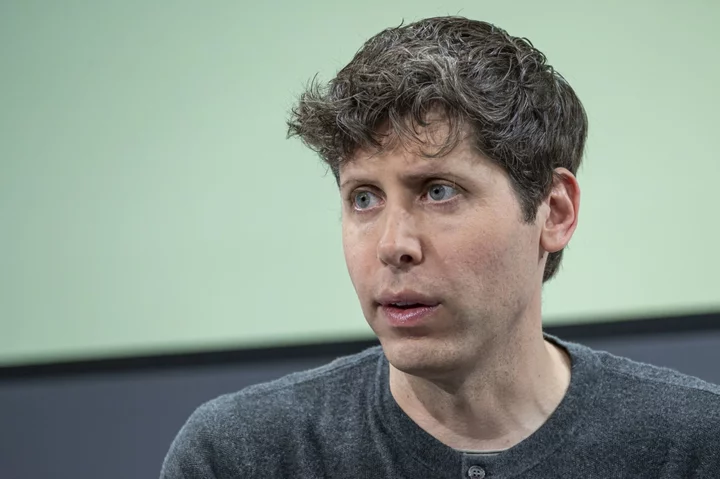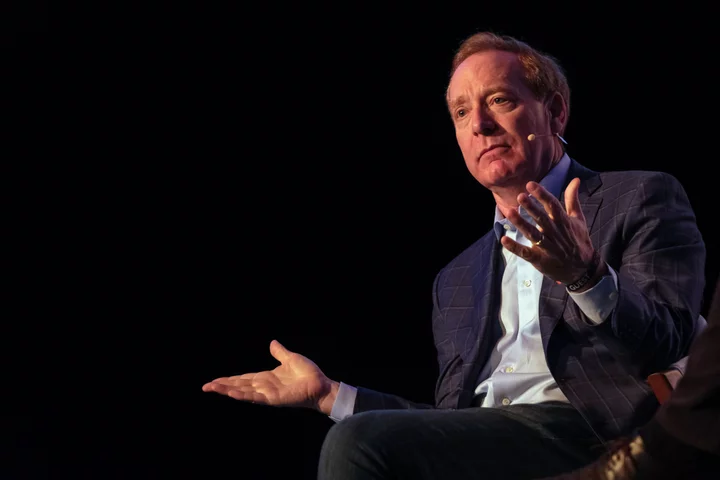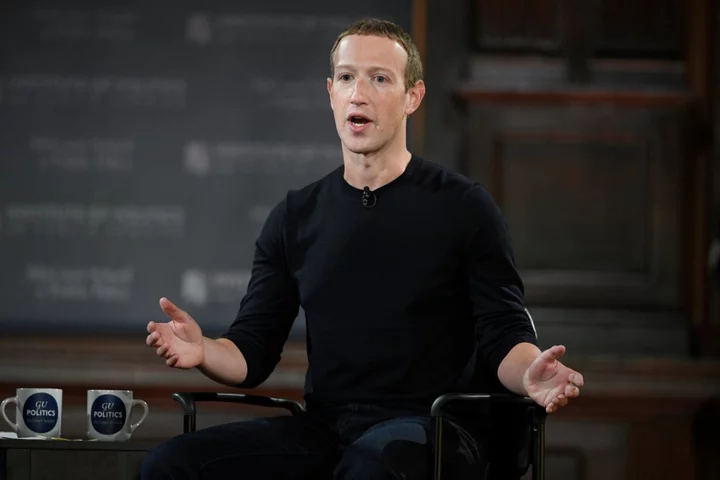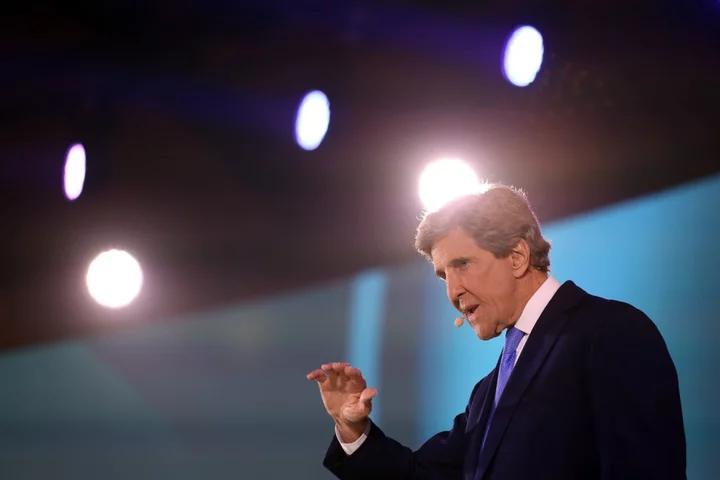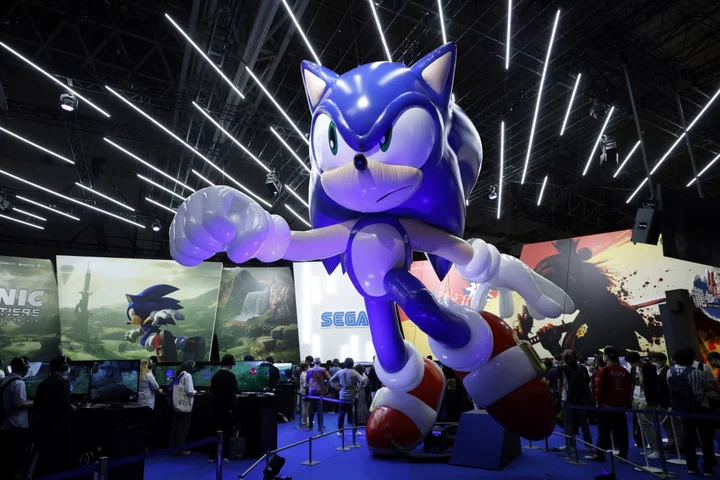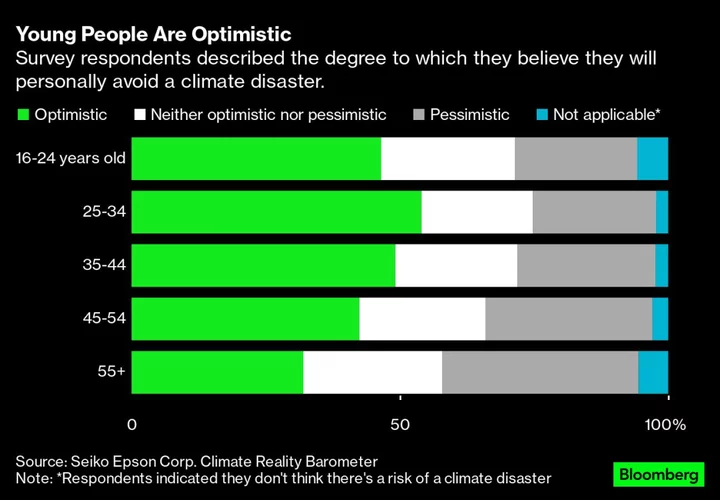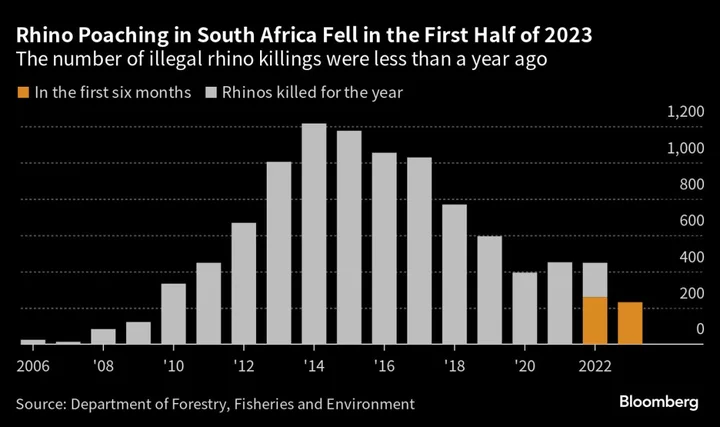It took three years, multiple digital-asset market dislocations and hundreds of millions of dollars, but the eyeball-scanning crypto project known as Worldcoin has officially launched.
“Worldcoin is an attempt at global scale alignment,” the digital identity and crypto payments project co-founded by OpenAI Chief Executive Officer Sam Altman said in a statement Monday. “The journey will be challenging and the outcome is uncertain.”
Both the digital asset market and the broader tech industry have undergone sharp changes in the years following the project’s founding. Since June 2021, when Bloomberg first reported on Altman’s new startup, the price of Bitcoin has taken a rollercoaster ride from about $32,000 to a high of more than $67,000 and back to less than $30,000.
Some of the startup’s original backers have been swept up in crypto market gyrations, including collapsed hedge fund Three Arrows Capital and Sam Bankman-Fried, the disgraced former CEO of bankrupt exchange FTX. And artificial intelligence has usurped crypto as the latest tech trend— with Altman himself emerging as one of AI’s most influential figures.
Worldcoin, like Altman, straddles the worlds of AI and crypto. The project uses a small device called an “orb” to scan people’s eyeballs in order to generate a a unique digital identity. That identity, or World ID, grants its holder “proof of personhood” in the Worldcoin parlance. Altman and his co-founders say the new approach to digital verification is essential in a time when AI is making it harder than ever to determine what’s created by humans and what isn’t.
In addition to launching a blockchain called OP Mainnet, the project also announced initial distribution of the Worldcoin crypto token to those who have already obtained a World ID and plans to broaden eyeball-scanning signups to more countries.
The process has not always been smooth. As it signed people up, the project was criticized for relying on allegedly deceptive and exploitative practices in countries like Indonesia, Ghana and Chile. And despite the buzz around AI, many in the industry wonder whether the sector has been swept up in a hype cycle — for example, an academic paper recently noted degraded performance in ChatGPT over time.
Altman said in an interview with Bloomberg News that the AI fervor has helped generate more enthusiasm around Worldcoin. “There’s much more interest and understanding and excitement, particularly as AI has become more of a factor in the world than when we started the project,” he said.
The current global regulatory environment for crypto, marked by crackdowns and lawsuits, poses a conundrum for the project. Worldcoin’s token is currently not available in the US, where tensions around crypto regulation have intensified in recent months. Altman and his co-founder Alex Blania published a letter Monday stating that rules were less clear in the US.
“There’s clearly a great lack of certainty, to say it as mildly as possible,” Altman told Bloomberg. “I think it’s a shame.”
Altman said he hopes that the US will be able to get to “a rational place” in terms of crypto regulation. He previously testified before the Senate in May, urging Congress to regulate AI.
Blania, who is also the CEO of Tools for Humanity, the startup developing Worldcoin applications, said he’s excited to expand use of Worldcoin in Asia, particularly in Japan and South Korea. Worldcoin has had more than 2 million signups, according to its website. Blania also noted that the project has upgraded its security following two recent issues: the theft of login credentials for some Worldcoin operators who were in charge of signing up new users, and black-market sales of World IDs.
Blania said the impact of these incidents was minimal, and in addition to implementing two-factor identity authentication, there’s also now a security feature that can detect when a login is geographically very far from where the user signed up for an account. “Of course there will be fraud,” Blania said. “It will not be a perfect system, especially early on.”
Blania suggested Worldcoin would move beyond being seen as a crypto project — a move reminiscent of the rebranding strategy recently undertaken by several other operators in the digital asset space.
“Crypto is hopefully a label that will get dropped over the coming years anyways, and it’s just essentially the technology that you use to build certain products,” Blania said.
Both Blania and Altman emphasized that decentralization, a key tenet of crypto, is an important part of their mission. Altman said he isn’t concerned about giving the impression that he has too much control in the market for digital tokens.
“In the world of crypto, I’m either unknown or close to it, and if so, not very well-liked,” Altman said. He added: “If I started a new AI thing, people might say something about undue influence.”

